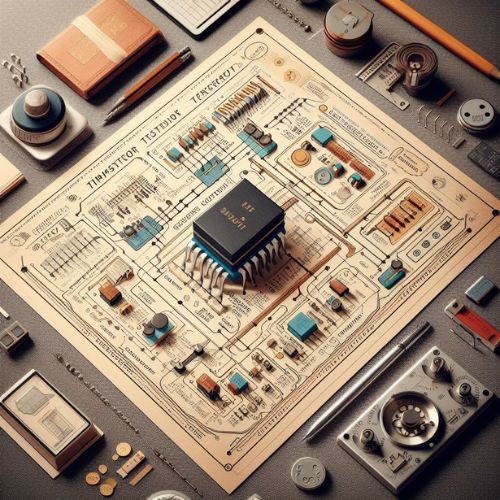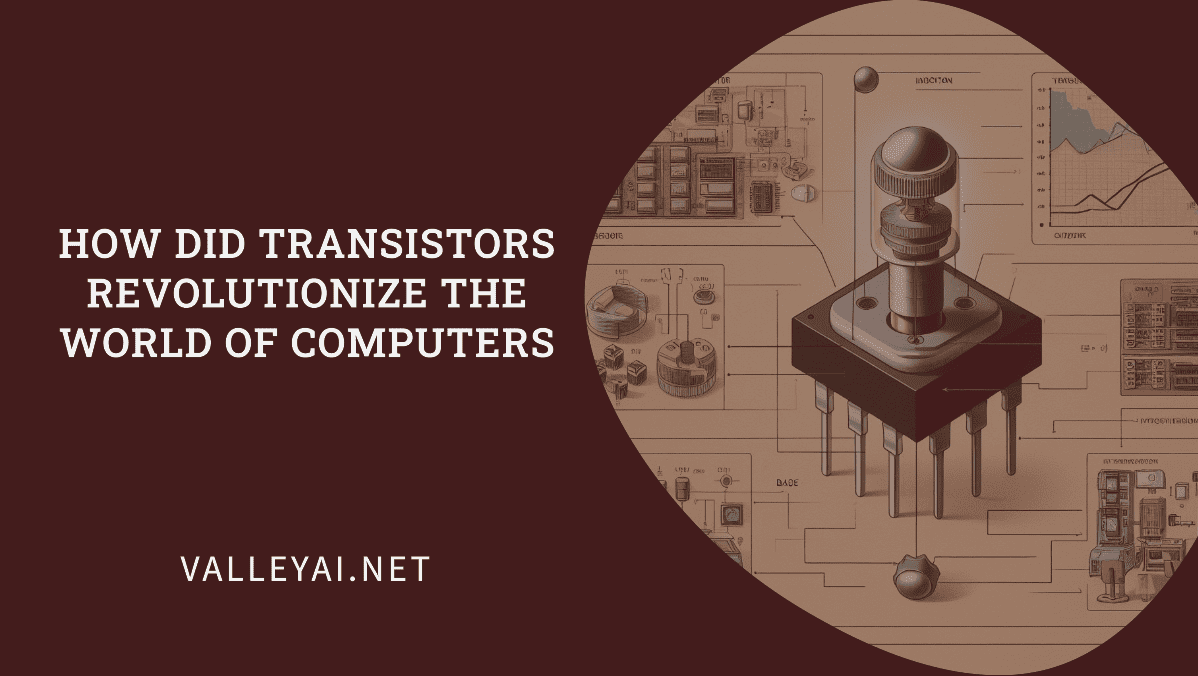The Heat Wall of 1946. To understand the revolution of the transistor, you have to look at the dead end computing faced in the mid-1940s. The ENIAC, completed in 1945, is often celebrated as the first general-purpose electronic computer, but from an engineering standpoint, it was a nightmare.
It relied on 18,000 vacuum tubes to process information. Vacuum tubes function like lightbulbs: they require a heated filament to boil electrons off a cathode (thermionic emission). This created two insurmountable problems:
- The Heat Wall: The ENIAC consumed 150 kilowatts of electricity enough to power a small village mostly converted into waste heat.
- The Failure Rate: Tubes burned out like lightbulbs. With 18,000 of them, the computer was frequently broken, often running for only a few hours before a tube failed and required manual replacement.
Computer scientists hit a hard ceiling. They couldn’t build more powerful computers because adding more tubes would generate so much heat the machine would melt, and the failure rate would rise to 100%. The transistor didn’t just improve the computer; it saved the industry from this physics-based cul-de-sac.
The Silicon Switch: How Transistors Broke the Physics Barrier of Computing
The Reliability Shift: Understanding Solid State
The primary revolution of the transistor was the shift to solid-state physics.
Unlike a vacuum tube, which manipulates electrons flying through a vacuum inside a fragile glass bulb, a transistor manipulates electrons moving through a solid block of crystal (semiconductor), typically silicon or germanium.
This distinction is critical. Because there is no filament to heat up and burn out, and no glass to shatter, a transistor is theoretically immortal. It operates at room temperature. This solved the reliability crisis instantly. Engineers could finally design complex architectures requiring millions of switches without the fear that one broken part would crash the entire system.
This reliability is the only reason modern software exists. If modern CPUs, which contain billions of transistors, had the failure rate of vacuum tubes, your computer would crash before it finished booting.
The Logic of Miniaturization: Why Smaller Means Faster
There is a common misconception that miniaturization is just about portability making computers small enough to fit in pockets. In reality, making transistors smaller is the primary way we make computers faster.
Electricity travels incredibly fast, but it is not instantaneous. In the era of room-sized computers, signals had to travel through meters of cabling to get from memory to the processor. This physical distance introduced latency (lag).
By shrinking transistors, engineers could pack them closer together. The distance electrons had to travel dropped from meters to millimeters, and eventually to nanometers. The shorter the path, the faster the processing speed.
Furthermore, smaller transistors require less voltage to switch states (from “0” to “1”). A vacuum tube might require hundreds of volts; a modern transistor requires less than one. This drastic reduction in power consumption is what enabled the shift from computers plugged into industrial power grids to laptops running on batteries.

The True Revolution: From Wiring to Printing
If the discrete transistor (the individual three-legged component) was the spark, the Integrated Circuit (IC) was the fire.
In the 1950s, even with transistors, engineers still had to hand-solder components together. This was slow, expensive, and prone to human error. This bottleneck was known as the “Tyranny of Numbers.”
The solution was the planar process, which allowed engineers to stop wiring circuits and start printing them. By layering chemicals on a flat wafer of silicon (photolithography), manufacturers could create millions of transistors simultaneously rather than soldering them one by one.
This manufacturing shift is the engine behind Moore’s Law. The revolution wasn’t just that transistors were better switches; it was that they were flat. Because they were flat, they could be printed. And because they could be printed, they could be scaled down. We went from fitting one transistor on a fingernail-sized chip to fitting 50 billion in the same space.
The Economic Impact of Free Logic
The final aspect of the revolution is economic. The transistor drove the marginal cost of computing power to near zero.
In the vacuum tube era, a single logic gate cost dollars and required significant maintenance. Therefore, computers were reserved for high-value tasks: calculating artillery trajectories, breaking codes, or modeling nuclear explosions.
As photolithography allowed us to print billions of transistors for the price of a few dollars, the cost per “bit” of logic vanished. This created the Embedded Computing revolution. Because logic became effectively free, we began putting computers into devices that previously had no business being smart washing machines, fuel injection systems, thermostats, and wristwatches.
The transistor didn’t just make supercomputers possible; it turned computing from a scarce, industrial resource into a ubiquitous utility, as common as electricity itself.

Conclusion: The End of the Curve?
For 70 years, the transistor revolution has been defined by scaling making the gates smaller to get more speed and efficiency. Today, we are approaching the physical limits of the silicon atom itself. As transistors shrink to just a few nanometers wide, quantum tunneling causes electrons to leak through the gates, re-introducing the heat and efficiency problems we solved in the 1940s. The next revolution may require a move beyond the classic silicon transistor, but the digital world we live in today is entirely the result of that initial shift from the hot vacuum tube to the cold crystal.
FAQs: How Did Transistors Revolutionize the World of Computers
How did transistors revolutionize the world of computers?
What is the role of transistors in the computer revolution?
They have enabled the development of faster processors, increased memory capabilities, and facilitated miniaturization, leading to the widespread adoption of computers in various industries and everyday life.
What made transistors better than vacuum tubes?
When did transistors start transforming computers?
The first working transistor was built in 1947 at Bell Labs by Bardeen, Brattain, and Shockley. By the mid-1950s, they were widely used in computers, leading to the second generation of machines that were smaller and more powerful than their vacuum tube predecessors.
What are the key benefits transistors brought to computing?
How did transistors enable integrated circuits and microprocessors?
Admin
My name is Kaleem and i am a computer science graduate with 5+ years of experience in AI tools, tech, and web innovation. I founded ValleyAI.net to simplify AI, internet, and computer topics while curating high-quality tools from leading innovators. My clear, hands-on content is trusted by 5K+ monthly readers worldwide.

